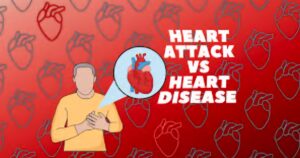A recent comprehensive study analyzing heart disease mortality in the United States from 1970 to 2024 reveals a complex and evolving picture:
🔹 Heart Attack Deaths Drop Significantly:
Deaths from heart attacks (acute myocardial infarctions) have decreased by nearly 90%. This remarkable decline is thanks to advances in medical treatments and public health efforts, saving countless lives.
🔹 Rise in Other Heart Conditions:
Meanwhile, fatalities from other heart diseases—such as heart failure, arrhythmias, and hypertensive heart disease—have surged by 81%. For some conditions, the increase is even more dramatic:
Heart failure: +146%
Hypertensive heart disease: +106%
Arrhythmias: +450%
🔹 Shift in Heart Disease Causes:
In 1970, ischemic heart disease (including heart attacks) was responsible for 91% of heart disease deaths, but by 2022, it accounted for only 53%. The share of other heart conditions went from 9% to 47%, highlighting a significant shift.
Why is this happening?
Medical advancements means more people survive initial heart attacks but may develop chronic conditions later.
Public health campaigns targeting smoking, blood pressure, and cholesterol have improved outcomes.
Aging populations live longer, increasing the likelihood of chronic heart issues.
Rising risk factors like obesity, diabetes, hypertension, and inactivity contribute to the increase in non-attack heart conditions.
Better diagnosis tools now detect these conditions more accurately.
What does this mean for us?
While we’ve made great progress in reducing heart attack deaths, the growing prevalence of chronic heart conditions underscores the need for ongoing prevention and management.
How can you lower your risk?
Eat a heart-healthy diet: Focus on fruits, vegetables, whole grains, lean proteins, and healthy fats.
Exercise regularly:** Aim for at least 150 minutes of moderate activity per week.
Manage stress:** Practice mindfulness, meditation, or hobbies that help you relax.
Control weight and blood pressure:** Regular check-ups and lifestyle adjustments are key.
Avoid smoking and limit alcohol consumption.**
Taking proactive steps today can significantly reduce your risk of developing heart disease tomorrow. Stay informed, stay healthy!
#HeartHealth #Cardiology #HeartDisease #PreventiveCare #HealthyLiving #Wellness #ChronicDisease #HeartFailure #StrokePrevention #PublicHealth #HealthyLifestyle

